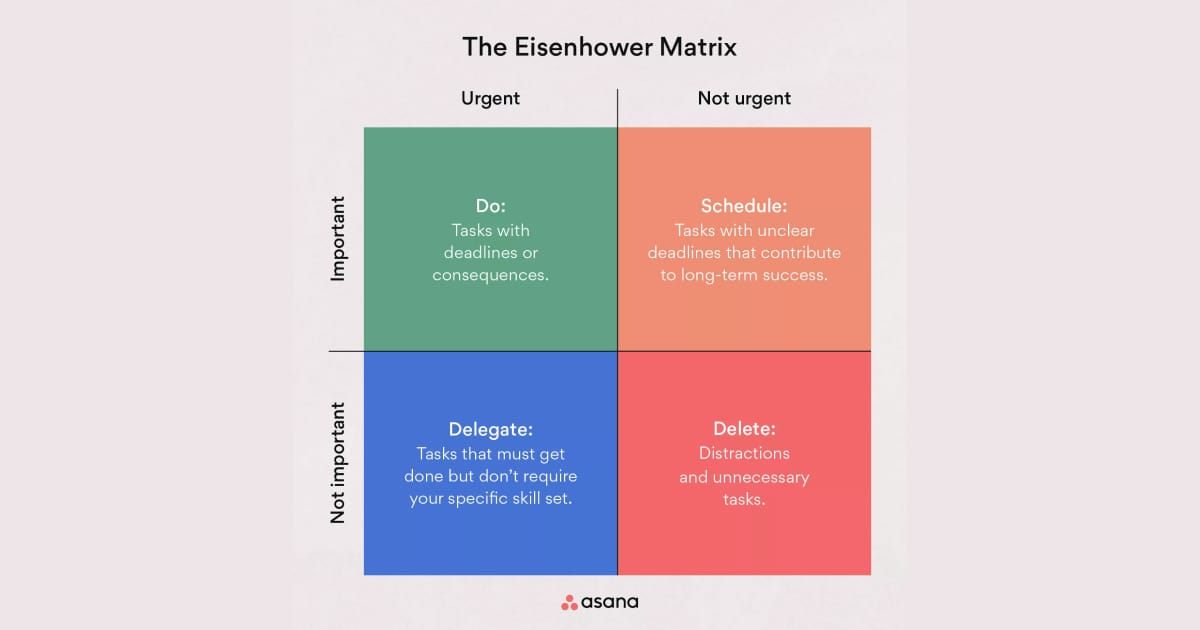4 Ways to Improve Your Work-Life Balance Today

The boundaries between professional and personal life are becoming increasingly blurred, especially with the rise of remote work and the digital age that keeps us connected 24/7. The pressure to always be "on" can lead to burnout, stress, and a diminishing quality of life. However, a balanced approach to work and life is not just possible, but essential for long-term well-being.
We'll discuss 4 practical and effective strategies that you can implement today to improve your work-life balance. Whether you are an employee, entrepreneur, or freelancer, these tips will help you find more harmony between your professional and personal responsibilities.
Way 1) Set Clear Boundaries Between Work and Personal Time

One of the biggest challenges to work-life balance is the lack of clear boundaries between work and personal life. Especially for those who work from home, it can be easy for work tasks to spill over into what should be personal or family time. Setting boundaries is crucial for protecting your time and mental well-being.
Establish a Dedicated Workspace
If you’re working from home, it's essential to create a dedicated space where you do your job. This area should be separate from places where you relax or spend time with family, if possible. When you work in a specific location, it creates a mental separation between work and home life, making it easier to switch off once the workday is over.
- Tip: If space is limited, you can use small designations like a specific corner of a room, a desk, or a particular chair. Make sure to leave this workspace at the end of the workday.
Stick to a Schedule
One of the most effective ways to establish boundaries is by adhering to a defined work schedule. Start and finish your work at consistent times each day to prevent your job from encroaching on your personal time.
- Tip: If possible, share your schedule with coworkers and clients, making it clear when you're available and when you're not. This helps to set expectations and reduces the likelihood of work-related interruptions during personal time.
Unplug During Non-Work Hours
With smartphones and constant connectivity, it can be tempting to check emails or messages during your free time. However, this continuous engagement with work can contribute to stress and fatigue. To improve work-life balance, commit to unplugging from work-related tasks during your designated off hours.
- Tip: Set up email filters or use apps that limit notifications outside work hours. Let colleagues know you won't be available after a certain time unless it's an emergency.
Way 2) Prioritize Time Management and Delegate Tasks

Time management is a key factor in achieving work-life balance. Efficiently managing your time allows you to complete your work tasks within set hours and leaves you with more personal time to recharge and pursue other interests.
Plan and Prioritize Tasks
Start each day by making a to-do list. Prioritize tasks based on urgency and importance, ensuring that you're focusing on the most critical tasks first. Avoid falling into the trap of spending time on low-priority activities that could be delegated or postponed.
- Tip: Use the Eisenhower Matrix (urgent vs. important grid) to classify tasks and make better decisions about where to spend your time.

Learn to Say No
One of the most overlooked aspects of time management is the ability to say no. Taking on too many tasks or accepting every request from coworkers or supervisors can stretch your time and energy thin. Saying no when your plate is full is not a sign of weakness but an acknowledgment of your limits.
- Tip: Frame your response positively, like "I'd love to help, but I'm currently focused on other priorities. Let's revisit this later."
Delegate Where Possible
Not every task needs to be done by you. Delegation is a powerful tool that helps lighten your workload. Whether it's at work or at home, identifying tasks that can be handed over to others allows you to focus on high-value activities that align with your goals and skills.
- Tip: Use collaborative tools such as Asana or Trello to distribute tasks among your team efficiently, ensuring accountability while reducing your burden.
Time Blocking and Breaks
Another strategy to manage time effectively is time blocking, where you schedule specific blocks of time for focused work, meetings, and even personal tasks. This method ensures that you allocate adequate time for both work and personal life. Additionally, scheduling regular breaks is important to maintain productivity and reduce stress.
- Tip: Follow the Pomodoro technique, which involves working in focused 25-minute intervals followed by a 5-minute break. After four intervals, take a longer 15-30 minute break.
Way 3) Focus on Self-Care and Mental Health

Maintaining good mental and physical health is a critical component of work-life balance. Neglecting self-care can lead to burnout, anxiety, and decreased productivity. By prioritizing your well-being, you'll be better equipped to handle both work and personal responsibilities.
Prioritize Sleep and Rest
Sleep is foundational to overall health, yet it’s often sacrificed for work. Adults need 7-9 hours of sleep per night to function optimally. Not getting enough rest can affect your ability to concentrate, make decisions, and handle stress.
- Tip: Create a bedtime routine that promotes relaxation, such as reading or meditating, and avoid screen time at least an hour before bed.
Incorporate Exercise into Your Routine
Regular physical activity is essential for managing stress, improving mood, and boosting energy levels. Exercise doesn't have to be time-consuming or intensive to be effective. Even a short walk during the day can rejuvenate your mind and body.
- Tip: Schedule time for exercise in the same way you schedule work tasks. Treat it as non-negotiable "me time."
Practice Mindfulness and Stress Management Techniques
Mindfulness is the practice of being present and fully engaged in the current moment. It helps reduce stress and prevents you from becoming overwhelmed by the many tasks at hand. Incorporating mindfulness techniques like meditation, deep breathing exercises, or journaling into your daily routine can help you manage stress more effectively.
- Tip: Start with short mindfulness sessions—just 5 to 10 minutes in the morning or during breaks. Gradually, you'll find it easier to stay centered throughout the day.
Seek Professional Help When Needed
If stress, anxiety, or burnout becomes overwhelming, it's important to seek professional help. Counseling, therapy, or coaching can provide support and strategies for coping with stress and balancing the demands of work and life.
- Tip: Many companies offer employee assistance programs (EAPs) that provide access to counseling services. Take advantage of these resources if available.
Way 4) Make Time for Personal Relationships and Hobbies

Achieving a balanced life is not just about minimizing work-related stress, but also about nurturing the personal side of your life. Strong relationships, meaningful hobbies, and personal fulfillment are vital components of a well-rounded and balanced life.
Prioritize Quality Time with Loved Ones
Spending time with family and friends is essential for emotional well-being and stress relief. However, it's not just about quantity, but quality. When you're with loved ones, make an effort to be fully present, leaving work-related thoughts or tasks behind.
- Tip: Plan regular activities with family or friends, whether it's having dinner together, going for a walk, or enjoying a weekend outing. Set aside specific times during the week when you'll focus solely on personal relationships.
Pursue Hobbies and Personal Interests
Engaging in hobbies that you’re passionate about is one of the best ways to relieve stress and create a sense of fulfillment outside of work. Hobbies can range from reading and painting to sports and gardening—whatever brings you joy and allows you to unwind.
- Tip: If time is a concern, start by dedicating just 15-30 minutes a day to a hobby. Over time, you’ll find these moments of personal fulfillment add up and enrich your life.
Disconnect from Work During Vacations and Breaks
Taking breaks and vacations is critical for rejuvenation. However, many people struggle with fully disconnecting from work during these times. Whether it's a weekend getaway or a week-long vacation, commit to stepping away from work completely. Use this time to recharge and focus on personal interests and relationships.
- Tip: Before your vacation, set up an out-of-office email response and delegate important tasks. Make it clear to colleagues that you won't be available unless there’s an emergency.
Balance is an Ongoing Process
It’s important to remember that work-life balance is not a one-time achievement but an ongoing process. Your priorities and responsibilities will evolve over time, and so should your approach to balancing them. Regularly check in with yourself to evaluate how well you’re maintaining balance, and adjust as necessary.
- Tip: Schedule a personal "balance check" every month to assess whether your work-life equilibrium needs recalibration.
Final Thoughts
Achieving work-life balance in today’s busy world may seem challenging, but with mindful effort, it’s entirely possible. By setting clear boundaries, managing your time effectively, and prioritizing self-care, you can create a more harmonious life. Small changes can make a big difference in helping you maintain a balanced routine.
A well-balanced life not only improves productivity at work but also brings greater personal satisfaction. Start today by taking small steps to improve your work-life balance—you deserve it.
Key Takeaways
| Key Area | Takeaways |
|---|---|
| Set Clear Boundaries | - Create a separate workspace. - Stick to a work schedule. - Turn off work after hours. |
| Manage Time & Delegate | - Prioritize important tasks. - Say no when needed. - Delegate tasks. - Use time blocks and take breaks. |
| Focus on Self-Care | - Get 7-8 hours of sleep. - Exercise regularly. - Practice mindfulness or stress relief. |
| Make Time for Relationships | - Spend quality time with loved ones. - Enjoy hobbies. - Disconnect during vacations. |







